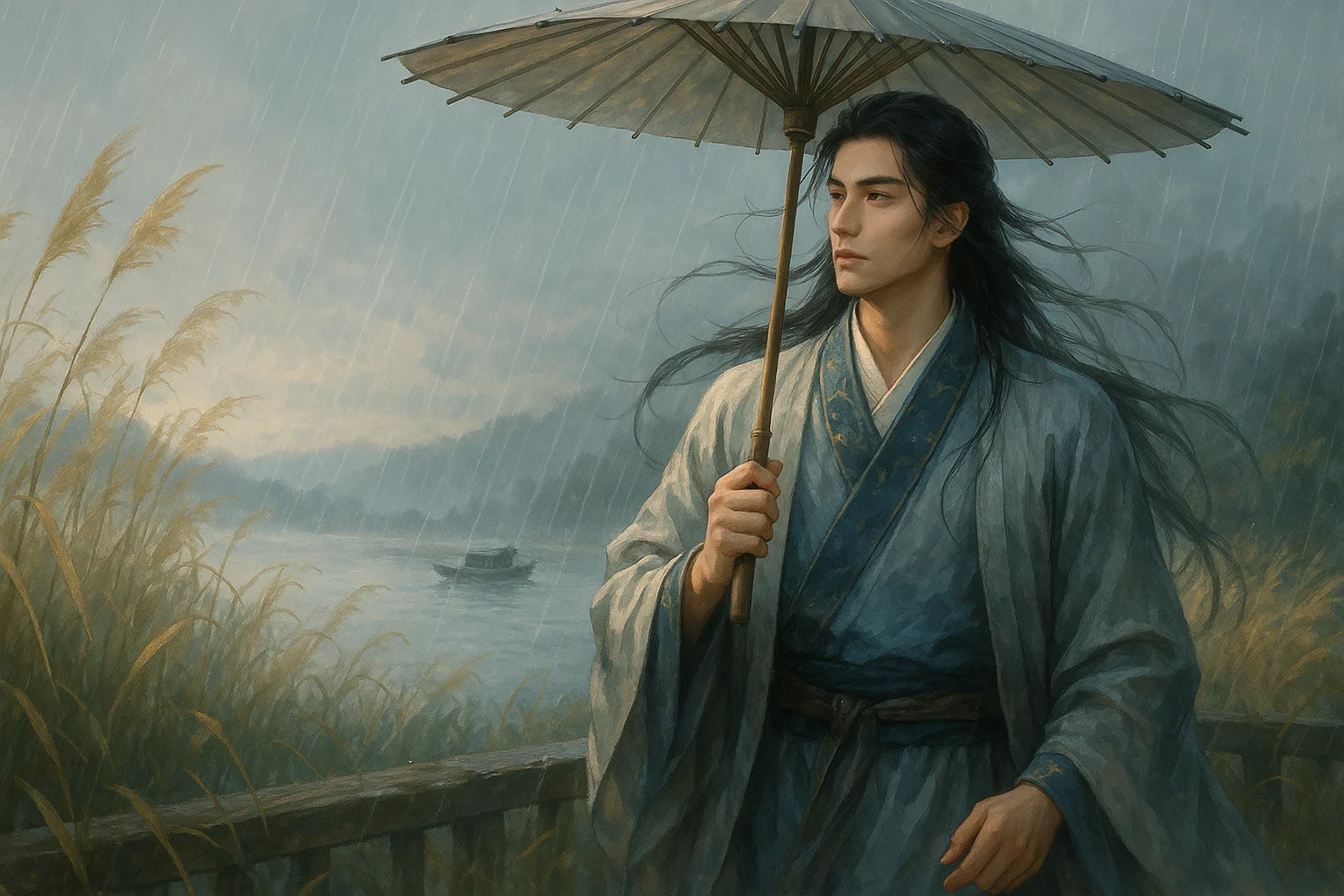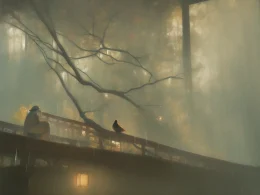In snow our men did fight,
Half of them died at night.
But letters came next day:
Winter clothes on the way.
Original Poem
「塞下曲」
许浑
夜战桑乾北,秦兵半不归。
朝来有乡信,犹自寄寒衣。
Interpretation
This compact frontier poem, composed during an era of relentless warfare, captures with stark precision the brutality of battle and its devastation on soldiers and their families. Set along the Sanggan River (in modern Hebei-Shanxi borderlands)—a strategic northern frontier location—the poem uses a microcosmic night battle to expose war's tragic essence.
First Couplet: "夜战桑乾北,秦兵半不归。"
Yè zhàn sāng gān běi, qín bīng bàn bù guī.
Night combat north of Sanggan's flow—
Half the Qin troops never return.
Ten characters suffice to paint a harrowing battle tableau. "Never return" delivers unadorned devastation, coldly stating the irreversible loss. This clinical narration, devoid of overt emotion, amplifies the tragedy through understatement—revealing war's annihilating impact on individual lives.
Second Couplet: "朝来有乡信,犹自寄寒衣。"
Zhāo lái yǒu xiāng xìn, yóu zì jì hán yī.
Dawn brings letters from home—
Still sending winter clothes.
The shift from nocturnal carnage to morning's domestic concern creates crushing irony. Families' loving preparations (winter garments) collide with the soldiers' already-sealed fates, the disconnect between care and corpse heightening war's senseless cruelty. Life's fragility and war's indifference intertwine in this unbearable juxtaposition.
Artistic Merits
- Structural juxtaposition: Battlefield mortality versus homestead tenderness generates seismic emotional tension
- Unadorned narration: Neutral diction and absence of commentary make the implicit anti-war stance more potent
- Microcosmic resonance: One soldier's fate mirrors countless families fractured by war
Holistic Appreciation
Though miniature in scale, the poem achieves monumental pathos. The night battle's chaos and delayed home letters form a devastating diptych—where life's extinguishment and persistent familial love collide. Without explicit judgment, the poem's horror emerges through stark contrast, condemning war's destruction while honoring life's sanctity.
Insights
War annihilates not just soldiers but the living who await them. This poem's deceptive simplicity lays bare combat's absurdity and human fragility, its unspoken critique echoing across centuries as timeless pacifist testimony. The very absence of polemics makes its memorial to lost lives and broken households more piercing—a masterclass in showing rather than telling war's true cost.
About the poet

Xu Hun (许浑), c. 791 - 858 AD, was a Tang Dynasty poet, a native of Danyang, Jiangsu Province. He was one of the most influential poets of the Late Tang Dynasty. His poems are characterized by nostalgia for ancient times and idyllic poems, in which he describes the scenery of water and rain.












